Body and Health
Top Energy-Boosting Supplements That Actually Work
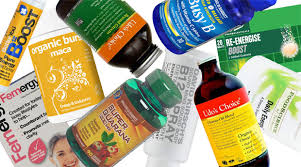
It’s most common for people these days to experience low energy levels, either in terms of lack of sleep, stress, diet, or too much work. Daily fatigue limits physical ability to stay focused, active, or motivated. While adequate rest, exercise, and nutrition are important, your body also requires something else.This called the supplements, Energy supplements cover the gap. Exactly that. These supplements enhance physical strength, mental clarity, and endurance. They are all different, so selecting the right one for your use is crucial. Below are the best and strongest supplements that boost energy and combat fatigue naturally and safely.
Vitamin B12:The Energy Essential Nutrient
Vitamin B12 helps your body convert food into energy fuel. It also plays a critical role in brain function, memory, and nerve support. When your body is low on B12, you’re tired, slow, and foggy. B12 deficiency is common in people who eat very little or no animal foods. Taking a daily dose of B12 makes you think better, feel more energized, and be more optimistic. It also helps in the production of red blood cells, which keep the oxygen going. You can purchase B12 in capsules, chewables, and even sprays. Most people find fatigue reduced within a week of daily consumption. It’s a staple for energy support.
Iron :The Oxygen Delivery Mineral
Iron aids in the delivery of oxygen from your bloodstream to your muscles and organs. Running low on iron results in your body not being able to draw enough oxygen, leading to fatigue, weakness, and lack of focus. This condition is more common in women, vegetarians, and those with digestive issues. Iron supplements restore your iron levels, and this restores your strength and endurance. Search for pills containing vitamin C, as it enhances absorption. Some will notice improvement in days, but it will take weeks to see the full effect. Check your iron levels first before taking large doses.
CoQ10:The Cellular Power Producer
Coenzyme Q10, or CoQ10, assists your cells in generating energy. Your body naturally produces this supplement, but the levels decrease with age. Those on statins or have cardiovascular illnesses typically have low CoQ10 levels. Supplementing with CoQ10 increases cellular energy improves endurance, and supports heart health. It’s also a favorite of those who want natural energy without caffeine. CoQ10 can be combined with other vitamins and antioxidants. Most users experience increased energy and endurance after two to three weeks of regular use.
Magnesium:The All-in-One Relaxer
Magnesium regulates more than 300 body functions, ranging from moving muscles and generating energy. Tiredness, stress, muscle cramping, and insomnia are caused by low magnesium. Most individuals receive insufficient amounts of magnesium through diet. A magnesium supplement calms your nervous system and enhances the sleep that rebuilds your natural vitality. It alleviates brain fog and allows muscle to recover quicker. There are various types such as magnesium, glycinate, citrate, and oxide. Choose one based on the need of your body and the way it gets absorbed.
Rhodiola Rosea – The Natural Stress Fighter
Rhodiola Rosea is an adaptogen that will make your body more resilient to stress. Stress zaps energy and leaves you physically and mentally drained. Rhodiola is healthy for your adrenal glands, balances hormones, and increases focus. It’s used by athletes, students, and high-stress groups. This herb improves endurance, response time, and erases fog from the brain. Take it in the morning for all-day energy. Many people experience a difference in one week of use.
Ashwagandha:The Calming Energy Boost
Ashwagandha is another of the adaptogens that can help stress and exhaustion. It reduces cortisol, the hormone your body makes when you’re stressed. If cortisol becomes too high over a prolonged period of time, it causes you to feel tired, jumpy and burnt out. Ashwagandha brings your body back into balance, improving sleep and energy without the use of artificial enhancement. It also helps memory, endurance, and mood. People who are fatigued but tired make most use of this herb. It comes in capsule, powder, or tea form.
L-Theanine + Caffeine:Smooth, Focused Energy
L-Theanine is a green tea-based amino acid that pairs with caffeine. Caffeine alone can cause jitters or crashes, but L-theanine smooths out the energy curve. Together, they provide clear focus, mental clarity, and alertness. This blend is popular with gamers, students, and business professionals. It gives you energy without getting you edgy or restless. It comes in nootropic pills or smart energy drinks. They can kick in in 30 minutes and last for a few hours.
Creatine:Rapid Muscle Energy
Creatine helps your muscles generate energy for intensive or short periods of work. It’s stored in your muscle tissue and utilized whenever you need quick strength. While it’s renowned for gymming, creatine also boosts brainpower and concentration. Vegetarians and vegans will generally see the biggest benefits since they get a negligible amount of creatine from foods. It improves exercise performance, power, and recovery of muscles. For best performance, consume 3 to 5 grams daily. Most users see results in two weeks.
Electrolytes: Simple but Mighty Energy Helpers
Electrolytes like sodium, potassium, and magnesium will keep you hydrated and your muscles functioning.It get lost when sweating, are ill, or not drinking enough water. If your body does not have these minerals, you will feel weak and dizzy. Adding electrolytes to your water will maintain your energy while exercising or it is a hot day. They have them in powder, tablet, or ready-to-drink liquids. They are worth their weight in gold while accomplishing hours of physical or mental labor.
Fuel Your Body the Smart Way
Energy supplements won’t replace good habits but can definitely help. Pick one that is suitable for your lifestyle and health needs. If you are stressed, experiment with adaptogens like ashwagandha or Rhodiola. If you’re dizziness or are weak, check your iron or magnesium level. Creatine, B12, and CoQ10 are the best bets for workouts or brain performance. Always consult a doctor if you are always tired. The right supplement will provide you with more energy and allow you to get the most out of each day—without sugar and caffeine.
Body and Health
Cholesterol Control Steps: How to Lower Your Levels Naturally
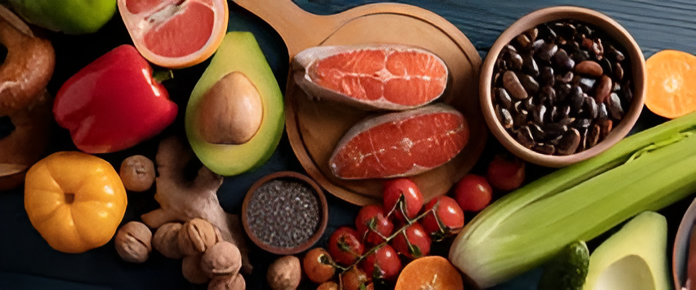
High cholesterol risk to your heart. But you can manage it. With simple changes every day, you can reduce your cholesterol naturally. In this blog, you’ll learn easy, proven ways to reduce bad cholesterol and boost the good type. These habits will keep your heart in shape and your well-being on course.
Understand Cholesterol: The Basics
Cholesterol is a fatty substance in your blood. Your body uses it to build cells. But too much of it can plug your arteries. There are two types: LDL (bad) builds up in arteries, and HDL (good) tries to remove it. You should also keep an eye on triglycerides, another harmful fat. Knowing your numbers helps you take action early and protect your heart.
Eat More Heart-Healthy Foods
The food you eat directly affects your cholesterol levels. Whole grains such as oats and barley contain fibre that soaks up cholesterol. So do beans, fruits, and vegetables. Nuts and seeds contain healthy fats. Fatty fish such as salmon provides omega-3s that provide a boost to your heart. Fresh, unprocessed foods are the key to lowering bad cholesterol naturally and safely.
Avoid Foods High in Saturated and Trans Fats
Certain fats raise LDL rapidly. These include saturated fats found in red meat, butter, and cheese. Even worse are trans fats, typically found in fried foods and snacks, which raise LDL and lower HDL. Choose lean meats, cook with olive oil, and read labels on food. Easy trades keep your heart healthy daily.
Be More Active Every Day
Exercise increases good cholesterol and decreases the bad type. Try for 30 minutes of activity five days a week. Walk, cycle, swim, or dance—just keep moving. Physical activity makes your heart pump more efficiently and circulation better. Being active also assists with losing weight, which aids in maintaining healthy cholesterol levels.
Lose Extra Weight Slowly
Being overweight affects cholesterol. Even a modest reduction in weight—5 to 10% of body weight—can improve LDL and HDL levels. Do not attempt crash diets. Shoot for long-term change: portion control, water, and less added sugar. Every pound lost helps your heart and your energy level.
Quit Smoking to Improve HDL
Smoking decreases good cholesterol and harms blood vessels. Stopping makes HDL go up and lowers your risk of heart disease quickly. In weeks, circulation gets better. In months, your heart improves. Secondhand smoke is also dangerous. Keep yourself and your loved ones safe by being smoke-free.
Drink Alcohol in Moderation
Too much alcohol raises blood pressure and cholesterol. If you do drink, drink in moderation. That means one drink a day for women and two for men. Red wine may raise HDL levels somewhat, but the dangers generally far outweigh the advantages. If you don’t drink already, it’s best not to start.
Consider Supplements (With a Doctor’s Approval)
There are a few supplements that can help lower cholesterol. They include plant sterols, psyllium husk, and omega-3 fish oil. Supplements work best, though, when paired with a healthy diet and regular exercise. Talk to your doctor before adding any new treatment. What works for others may not work for you.
Get Regular Cholesterol Tests
You can’t fix what you don’t check. A blood test, through a simple blood draw, shows you your LDL, HDL, and triglyceride levels. Adults should have their eyes examined every 4 to 6 years or more frequently if at risk. Knowing your numbers, you can visualize improvement and stay motivated. Please work with your doctor to set goals and follow up on them.
Managing cholesterol is about making daily choices, not seeking quick solutions. Eat sensibly, get moving, and cut back on harmful fats. Quit smoking, use alcohol in moderation, and track your progress. Every step you take protects your heart and adds healthy years to your life. Start today—and build a healthier future, one habit at a time.
Body and Health
Digestion Made Easy: Daily Habits for a Healthy Gut
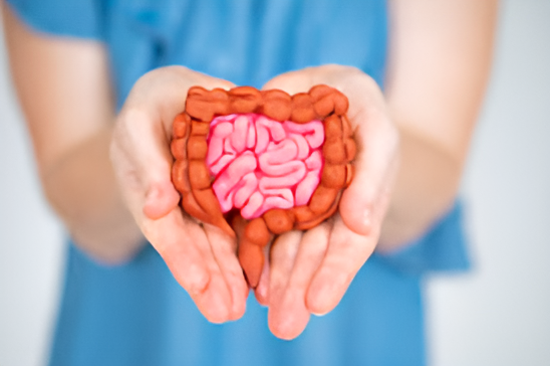
Good digestion is part of the key to a healthy body and mind. When your digestive system is in good working order, your body receives the nutrients that it needs in order to grow, stay active, and fight off disease. If your digestion is poor, however, you may feel bloated, tired, or even queasy. Luckily, you don’t need to drastically alter your habits to correct this. Daily habits can help your digestion and make you feel better. Today, we’ll talk about the easy and natural ways to support your daily digestive health.
Why Your Digestion Needs Daily Care
Your body’s digestive system is working around the clock, even when you’re sleeping. It breaks down the food you eat into nutrients and sends them to the parts of your body that need them. When your digestion is healthy, everything works just fine from the way you feel after meals to the amount of energy you have. But when digestion is sluggish, constipation, gas, and stomach pain begin to happen. Maintaining your digestive system every day enables your body to effectively absorb nutrients and enables you to feel light and energetic.
Eat More Fiber-Rich Foods Every Day
Fiber helps move food through your body and keeps your stomach and intestines healthy and clean. It prevents constipation. You can get fiber from many foods like fruits, vegetables, whole grains, lentils, and beans. Have a salad, an apple, or a whole-grain sandwich every day. These keep your digestive system functioning well and in balance. The more unprocessed and natural your food is, the better it is for your gut. Begin to add fiber to your diet slowly and include water in order to help it work better.
Drink Plenty of Water Throughout the Day
Water helps digest food in your body and flushes out waste from your body. Without enough water, digestion slows down, and constipation or cramps may result. Try drinking at least 6–8 glasses of water every day. Have a bottle of water with you at all times to make it easily accessible. You can also drink water-filled foods, such as cucumbers, oranges, and watermelon. If water becomes too bland, add lemon or mint to it for a flavor. Keeping yourself hydrated is one of the easiest ways to help in easy and smooth digestion.
Chew Your Food Slowly and Properly
Digestion begins in the mouth. When you chew food well, it is shredded into smaller pieces so it will be easier to digest. Failure to chew for a sufficient amount of time or rushing through eating may cause digestion to be harder. Try taking small bites and chewing each mouthful 15–20 times. This not only aids in digestion but prevents you from eating more than you can handle. Eating slowly allows your body time to catch up with your brain, leading to feeling better in general after a meal. Slow down and savor your bites.
Add Probiotic Foods to Your Diet
Probiotics are “friendly” bacteria that maintain the health of your gut. They facilitate digestion and can even help reduce bloating and gas. Yogurt, kefir, kimchi, miso, and pickles are all probiotic foods. These foods stabilize your gut bacteria and strengthen your digestive system. Try mixing in a tablespoon of yogurt in your morning breakfast or consuming some fermented vegetables during lunch. You don’t need much—small amounts daily can make a big difference in the long term.
Don’t Overeat and Eat Regularly
Overeating at one meal will slow down your digestion and leave you feeling sleepy or sluggish. Try to eat smaller portions and stop when you feel approximately 80% full. This leaves your body enough space and energy to digest food without exerting. Eating meals at evenly spaced intervals also helps. Skipping meals or eating meals very late at night can confuse your stomach and slow down digestion. Stick to a regular eating schedule with breakfast, lunch, and dinner. Thus, your stomach knows what to expect and functions optimally.
Keep Active With Light Daily Movement
Exercise is not just good for muscles—it is also beneficial for your stomach. Light exercise helps your body digest food more efficiently. Even a 15–30 minute walk after meals can enhance digestion. Stretching, yoga, or outdoor games can maintain the body’s activity and prevent bloating. If you spend long periods sitting, your digestion can be impaired. So try and stand up and move around every hour. Being active not only benefits your tummy but also your mood and energy.
Reduce Stress to Support Your Stomach
Stress works on your body in a number of ways—including the efficiency at which you digest food. When stressed, your body may release fewer digestive enzymes and slow down the movement of food through your digestive system. This can lead to bloating, cramps, or even nausea. Engage in deep breathing, brief walking, or fun activities to soothe your mind. Listening to music, reading, or talking to friends can also placate stress. Caring for your mind is as important as what you are feeding your body. A calm mind and healthy stomach go hand in hand.
Your Digestive Health Is in Your Hands
You don’t need to be taking pills or eating special foods to digest more effectively. Proper daily habits can make a huge difference. Fiber-rich foods, lots of water, slow chewing, and stress control are all simple but powerful measures. Just start small, be regular, and listen to your body. With a bit of attention and TLC, your digestion will thank you, and you’ll be lighter and healthier every day.
Body and Health
Effective Fitness Guidelines for a Healthy Adult Lifestyle

Being fit is not only for sports lovers or gym users. Fitness is a necessity for all adults of all ages. Regular exercise makes life happier. Fitness takes a backseat in the busy lifestyle of today. But it is easier to be active than you would think. This blog provides easy-to-follow and easy-to-apply fitness tips for every adult. You will learn how to stay active, avoid injuries, and feel great every day.
Why Fitness Matters for Adults
Fitness improves nearly every part of your life. Exercise regularly boosts energy, mood, and mental health. It even lowers your risk of becoming ill.
Regular exercise helps adults avoid heart disease, diabetes, and obesity. They’re less stressed and anxious as well. Having a healthy body also makes your brain perform better. Fitting fitness into your daily life is not only great—it’s essential.
Start with a Simple Plan
You don’t need an elite trainer or gym. Start small with daily habits. 30 minutes of walk a day is enough. If you are not accustomed to fitness, start slowly. Make goals that you can accomplish in a week. Then gradually build your way up with time. Build intensity gradually. Track your progress through the aid of a notebook or app.This keeps you motivated and on the right track with your plan.
Include All Four Types of Exercise
Your entire exercise program should include four types of exercise. Each kind helps your body in many different ways.
1. Aerobic (Cardio) Exercises
These activities get your heart rate up. They make your lungs, circulation, and endurance stronger.
Examples: Brisk walking, cycling, swimming, jogging, or dancing. Try 150 minutes of moderate aerobic exercise weekly. You can break it up into smaller chunks.
2. Strength Training
Muscle building makes your bones and joints stronger. It burns calories at rest too. Examples include push-ups, weight training, resistance band exercises, or body squats. Strength train at least two times a week. Train all muscle groups majorly.
3. Flexibility Exercises
Flexibility avoids injuries. It keeps joints and muscles in good working condition. Examples: Stretching, yoga, or simple mobility drills. Do some stretching after exercising or 10 minutes a day.
4. Balance Exercises
Proper balance keeps you from falling and standing up tall. You will need to do this as you get older. Things like Standing on one leg, heel-to-toe walking, or doing tai chi. Do balance exercises whenever you can a few times a week.
Fuel Your Body with the Proper Foods
You are only half-way there with exercise. You have to eat properly, too. Eat plenty of vegetables, fruits, lean protein, and whole grains. Drink plenty of water—at least 6 to 8 glasses of water a day. Avoid sugary snacks, fried foods, and soft drinks. These make you slower and tired. Eat a small protein snack after exercises. It will help your muscles recover faster.
Stay Consistent, Not Perfect
It’s okay to miss a day now and then. Things come up, and things get in the way. The key is that you’re consistent overall. Don’t quit if you miss a workout. Pick it up again the next day. Small things make big differences. Get habits into play in your daily life. Take the stairs, walk to the water cooler, or stretch at bedtime.
These small things keep you going without adding extra time.
Listen to Your Body
You should be challenged by fitness—but not in pain. Sore muscles are fine, but pain is a sign that something’s not right. Warm up before each exercise session to prepare your body. Cool down afterwards to stretch out muscles. Take a break and rest if you feel dizzy, breathless, or in pain. If it persists, consult a physician.
Respect your boundaries and build strength with age.
Make Fitness Fun and Social
Exercise does not have to be boring. Try different workouts to make it exciting. Learn a dance class, do sports, or hike with friends. You can even do home workouts via YouTube. Working out with people makes it more fun. It also keeps you motivated and on track. Fitness must be something you enjoy—not something you dislike.
Sleep Well to Recover and Grow
Sleep is when your body heals and builds strength. Adults need 7 to 9 hours of sleep each night. Lack of sleep hinders your progress and increases your risk of injury. It also affects your mood and focus. Try to go to sleep and wake up at the same time every day. Avoid screens before bed, and keep your room dark and quiet. Better sleep leads to better fitness results.
Mark Your Progress and Reward Yourself
Maintain a workout, step, or weight loss log. This helps you see progress over time. Set weekly or monthly goals. Treat yourself when you meet them. Buy new exercise gear or treat yourself to a healthy food. Rewarding small wins keeps you motivated and excited for the journey.
Create a Stronger Tomorrow, Today
Fitness isn’t about being perfect. It’s about showing up, staying active, and building habits that last. By following these fitness guidelines, you’ll feel better, look better, and live a longer, healthier life.Start today, one step at a time. Your future self will thank you.
-

 Healthy food4 weeks ago
Healthy food4 weeks agoHealthy Vegan: Fact vs. Fiction
-

 Healthy food3 weeks ago
Healthy food3 weeks agoChia Seeds: Tiny Grains With Giant Power
-

 Mind & Soul3 weeks ago
Mind & Soul3 weeks agoThe One-Minute Calm: How Breathing Can Change Everything!
-

 Healthy food2 weeks ago
Healthy food2 weeks agoFood to Fight Depression and Anxiety: What to Eat to Feel Better
-
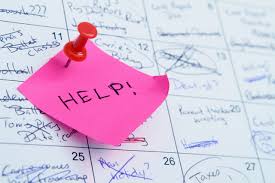
 Personal Development2 weeks ago
Personal Development2 weeks agoSchedule Overload: How to Handle a Busy Life Like a Pro
-

 Mind & Soul3 weeks ago
Mind & Soul3 weeks agoUnderstanding Anxiety: A Guide to the Different Types
-

 Mind & Soul3 weeks ago
Mind & Soul3 weeks agoDistance Isn’t the End: 10 Ways to Keep Your Love Alive
-
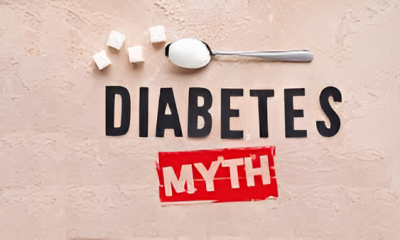
 Body and Health3 weeks ago
Body and Health3 weeks ago8 Diabetes Myths You Shouldn’t Believe
























